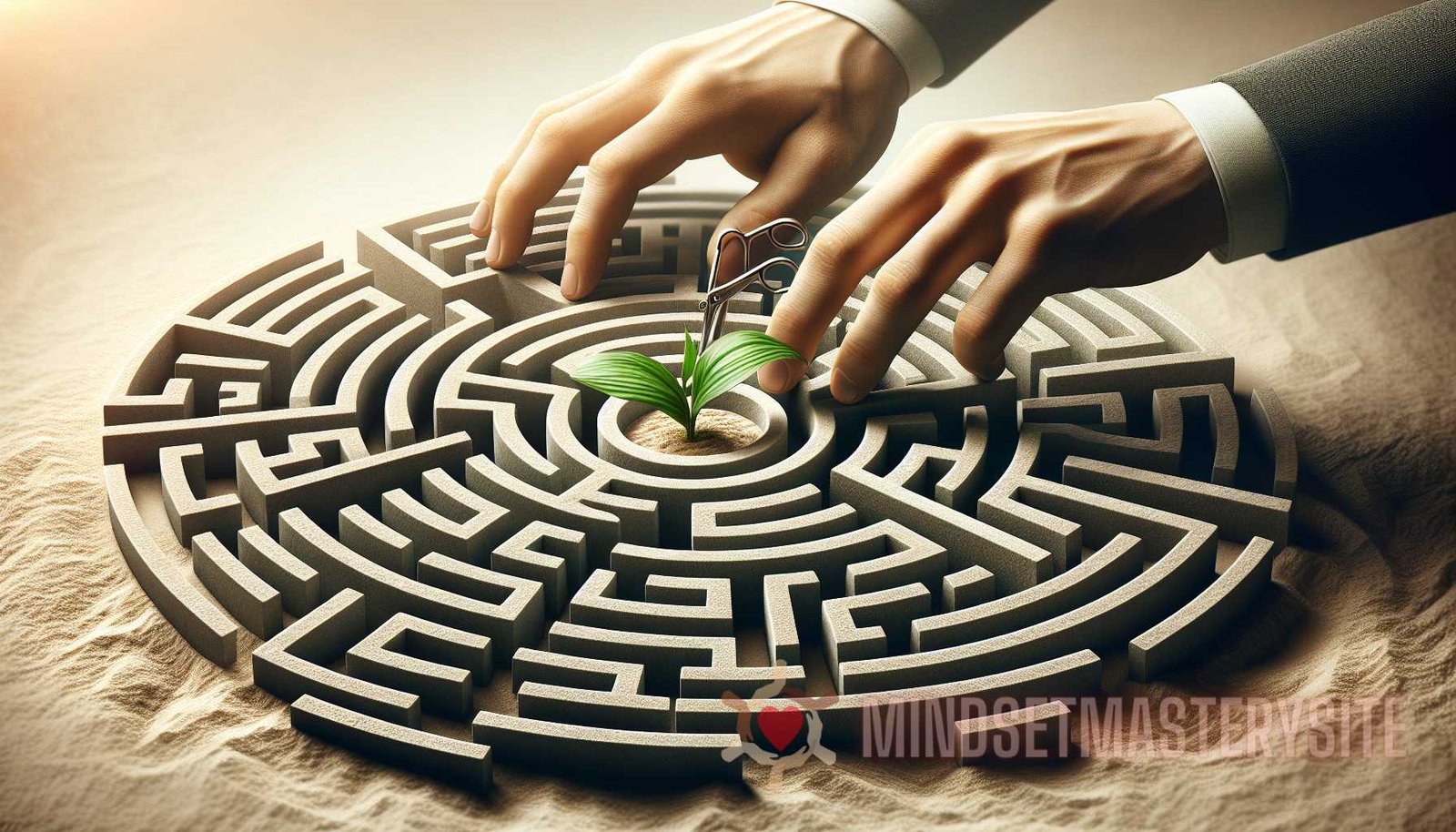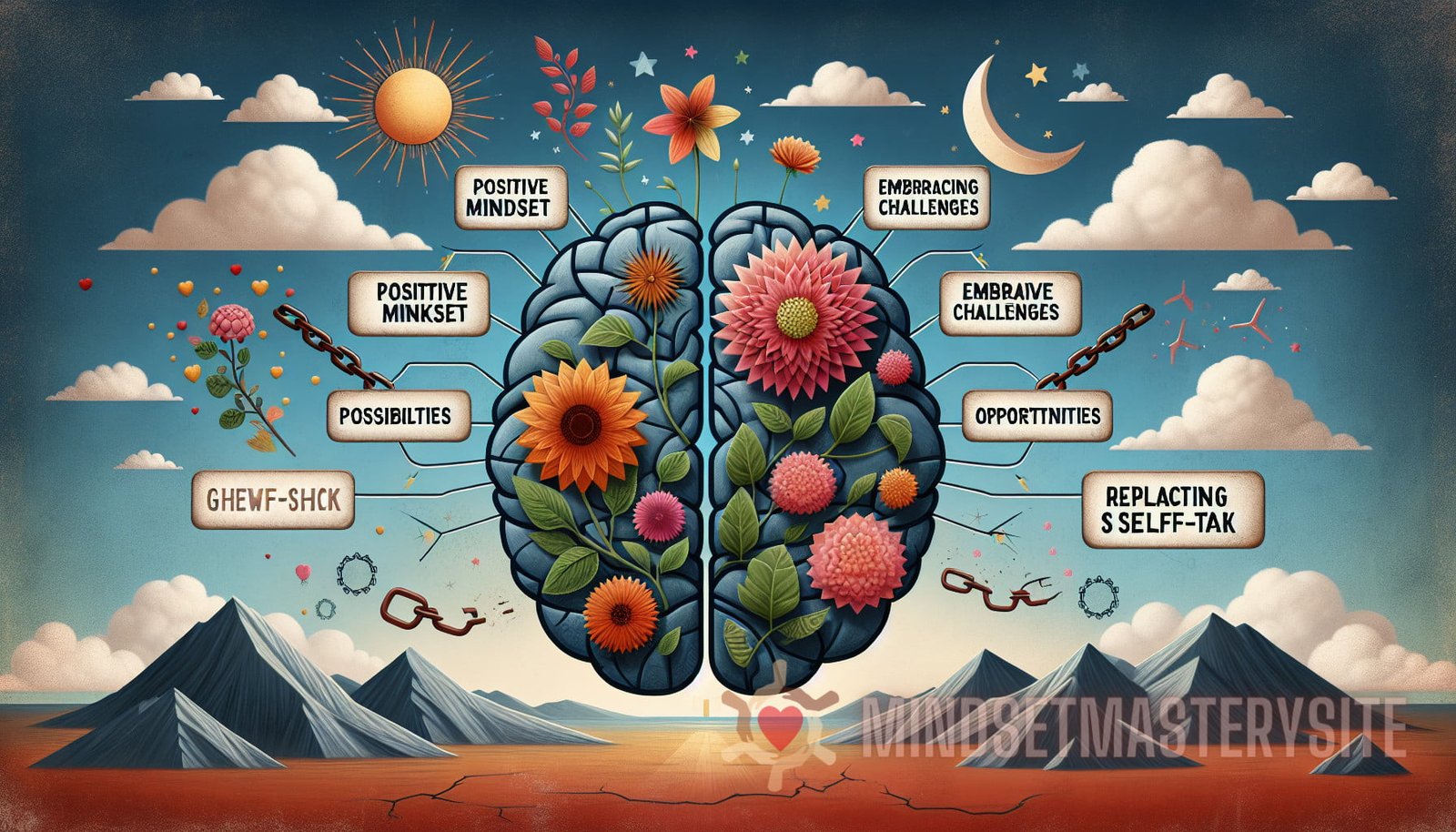The Cognitive Revolution: Harnessing the Power of Growth Mindset for Lifelong Success
Success in life is not just about talent or intelligence, but about the way we approach challenges and setbacks. Growth mindset is a powerful concept that can significantly impact our personal and professional development. By understanding and harnessing the cognitive growth mindset, we can unlock our full potential and achieve lifelong success.
What is Growth Mindset?
Growth mindset is a term coined by psychologist Carol Dweck to describe the belief that our abilities and intelligence can be developed through effort, hard work, and perseverance. Individuals with a growth mindset believe that their talents and intelligence are not fixed traits, but rather qualities that can be cultivated over time. They view challenges, setbacks, and criticism as opportunities for growth and learning.
In contrast, individuals with a fixed mindset believe that their abilities and intelligence are fixed traits that cannot be changed. They tend to avoid challenges, give up easily, and see failure as a reflection of their inherent limitations.
Research has shown that individuals with a growth mindset are more likely to embrace challenges, persist in the face of setbacks, and achieve higher levels of success compared to those with a fixed mindset. They are more resilient, adaptable, and open to learning from their mistakes.
The Science Behind Growth Mindset
The concept of growth mindset is backed by extensive research in the fields of psychology and neuroscience. Studies have shown that our brains have the incredible ability to grow and change throughout our lives through a process called neuroplasticity.
When we face challenges and engage in deliberate practice, our brain forms new neural connections and strengthens existing ones. This process allows us to acquire new skills, improve our abilities, and adapt to new circumstances.
Furthermore, research has shown that individuals with a growth mindset have more active and engaged neural networks. They exhibit higher levels of brain activity in areas associated with learning and cognitive processing.

- More about growth mindset can be found in this detailed guide.
- Learn how to cultivate resilience with a growth mindset in this article.
The Benefits of Developing a Growth Mindset
Developing a growth mindset can have a profound impact on various aspects of our lives, including:
- 1. Personal Growth: Embracing a growth mindset can help us develop a sense of self-improvement and personal growth. It allows us to see failures and setbacks as opportunities for learning and growth, rather than sources of discouragement.
- 2. Professional Development: In the workplace, individuals with a growth mindset are more likely to take on challenging projects, seek feedback, and continuously improve their skills. This can lead to increased job satisfaction, career development, and opportunities for advancement.
- 3. Resilience: A growth mindset fosters resilience in the face of adversity. Instead of becoming discouraged or giving up when faced with setbacks, individuals with a growth mindset bounce back quicker and view challenges as opportunities for growth.
- 4. Improved Relationships: When we have a growth mindset, we are more open to feedback and willing to learn from others. This enhances our ability to collaborate, communicate, and build stronger relationships with others.
- 5. Lifelong Learning: Individuals with a growth mindset have a thirst for knowledge and are motivated to continuously learn and grow. They seek out new experiences, acquire new skills, and actively engage in lifelong learning.
Cultivating a Growth Mindset
While some individuals naturally possess a growth mindset, it is a trait that can be developed and cultivated over time. Here are some strategies to help foster a growth mindset:
- 1. Embrace Challenges: Instead of avoiding challenges, actively seek out new opportunities to stretch yourself and learn. Embracing challenges is a key component of developing a growth mindset.
- 2. View Failure as a Learning Opportunity: Rather than seeing failure as a reflection of your abilities, view it as an opportunity to learn, grow, and improve. Analyze your mistakes, identify areas for improvement, and try again.
- 3. Practice Self-Compassion: Be kind and compassionate to yourself when facing setbacks or challenges. Treat yourself with the same kindness and understanding you would offer a friend.
- 4. Seek Feedback: Actively seek feedback from others and be open to constructive criticism. Feedback provides valuable insights and can help you identify areas for improvement.
- 5. Cultivate a Love for Learning: Develop a curiosity and passion for learning. Set aside time for reading, engage in new hobbies, and continuously seek out opportunities for personal and professional growth.

The Role of Mindset in Education
Growth mindset has gained significant attention and application in the field of education. Research has shown that students with a growth mindset perform better academically, are more motivated to learn, and have higher levels of resilience.
Educators can play a crucial role in fostering a growth mindset in their students by providing a supportive and encouraging environment. By praising effort, providing constructive feedback, and promoting a love for learning, educators can help students develop a growth mindset and unlock their full potential.
The Cognitive Growth Mindset in the Workplace
Employers are increasingly recognizing the value of growth mindset in the workplace. Companies that promote a growth mindset culture tend to have more engaged, motivated, and productive employees.
Organizations can foster a growth mindset by encouraging employees to take on challenges, providing opportunities for professional development and continuous learning, and recognizing and rewarding effort and growth.
Conclusion
The cognitive growth mindset is a powerful concept that can significantly impact our personal and professional success. By understanding and cultivating a growth mindset, we can unlock our full potential, embrace challenges, and continue to learn and grow throughout our lives. Through the power of neuroplasticity, we can rewire our brains and achieve lifelong success.
Remember, developing a growth mindset is a journey that requires effort, perseverance, and self-compassion. By embracing challenges, viewing failure as an opportunity for growth, seeking feedback, and cultivating a love for learning, you can harness the power of growth mindset and pave the way for a successful and fulfilling life.


